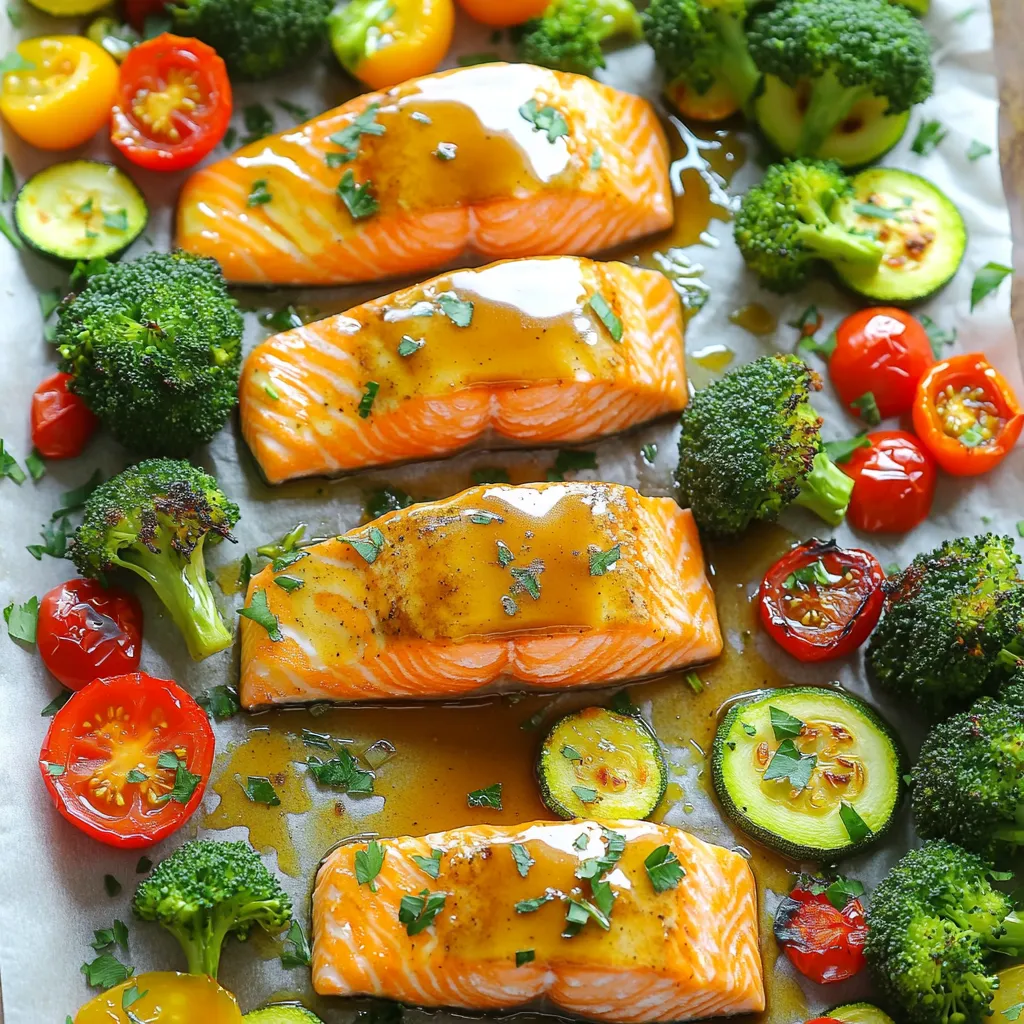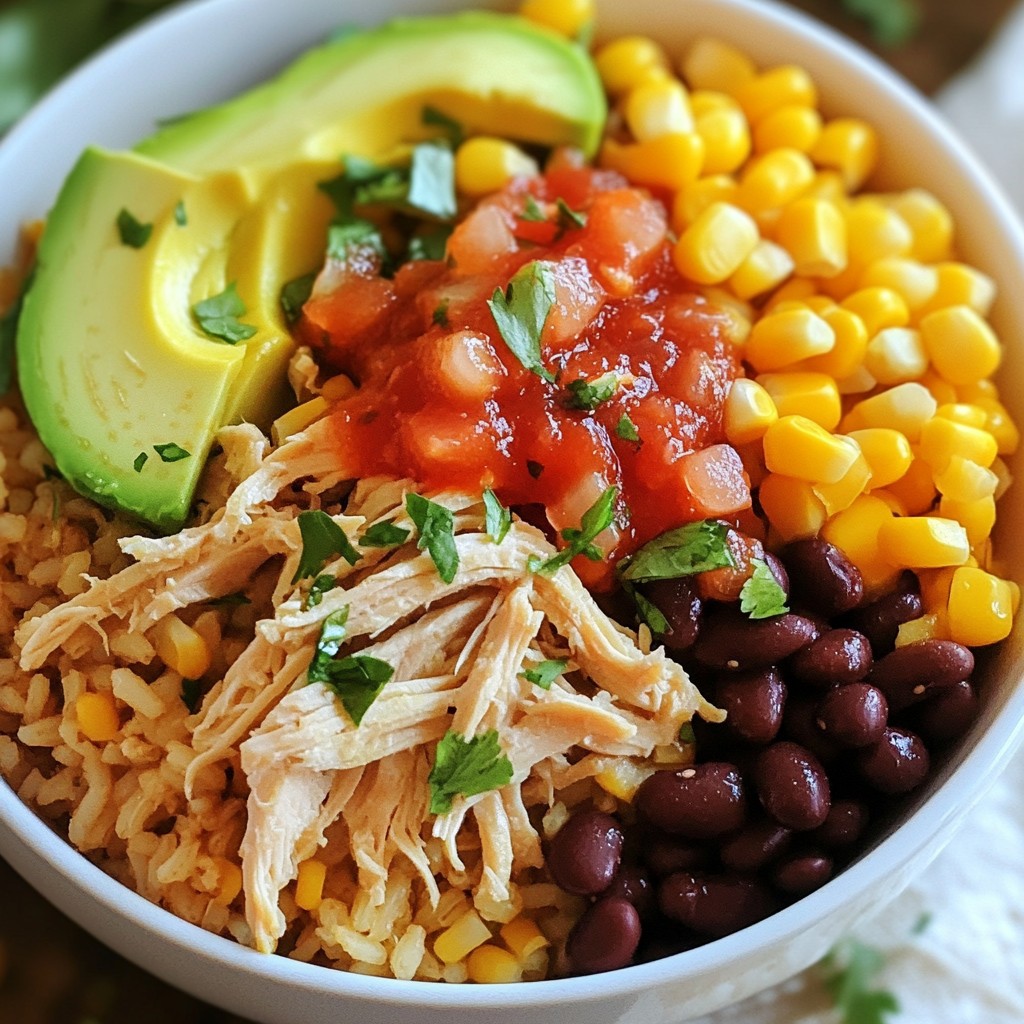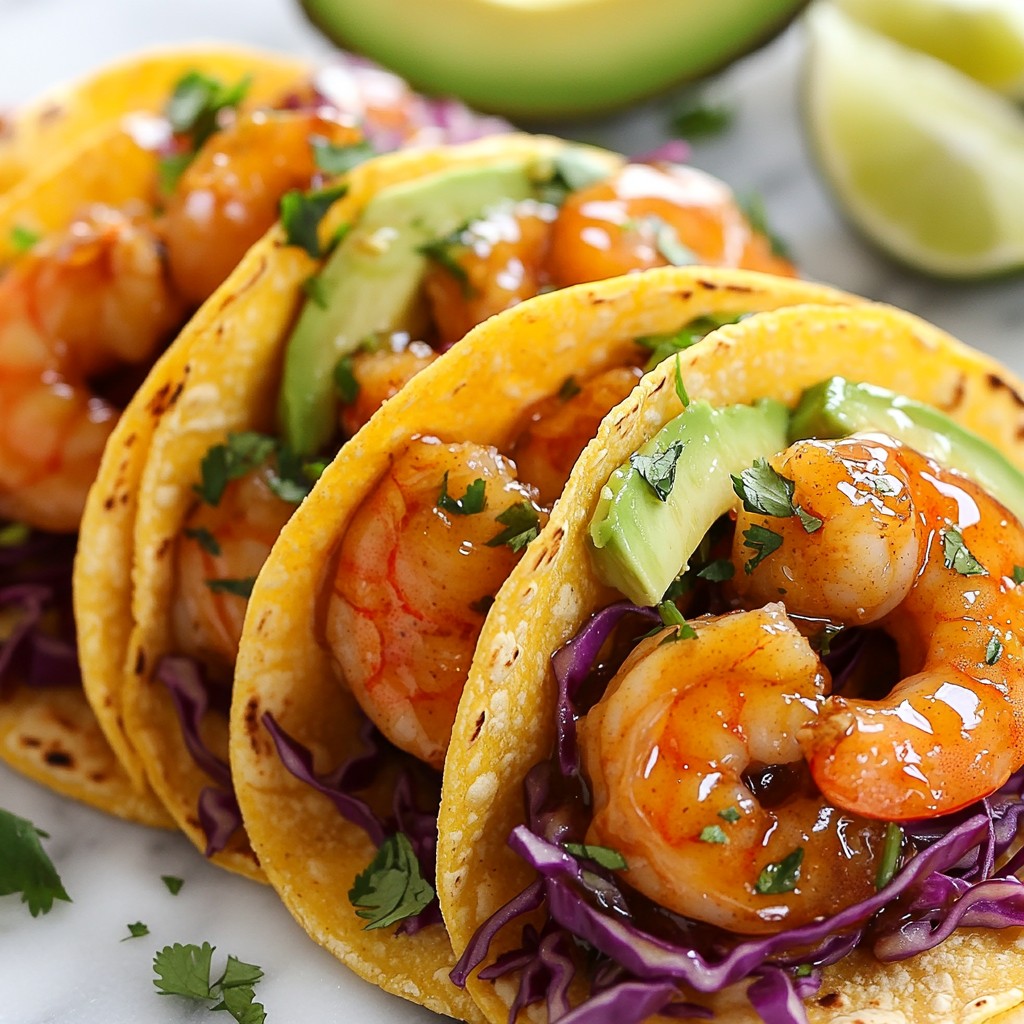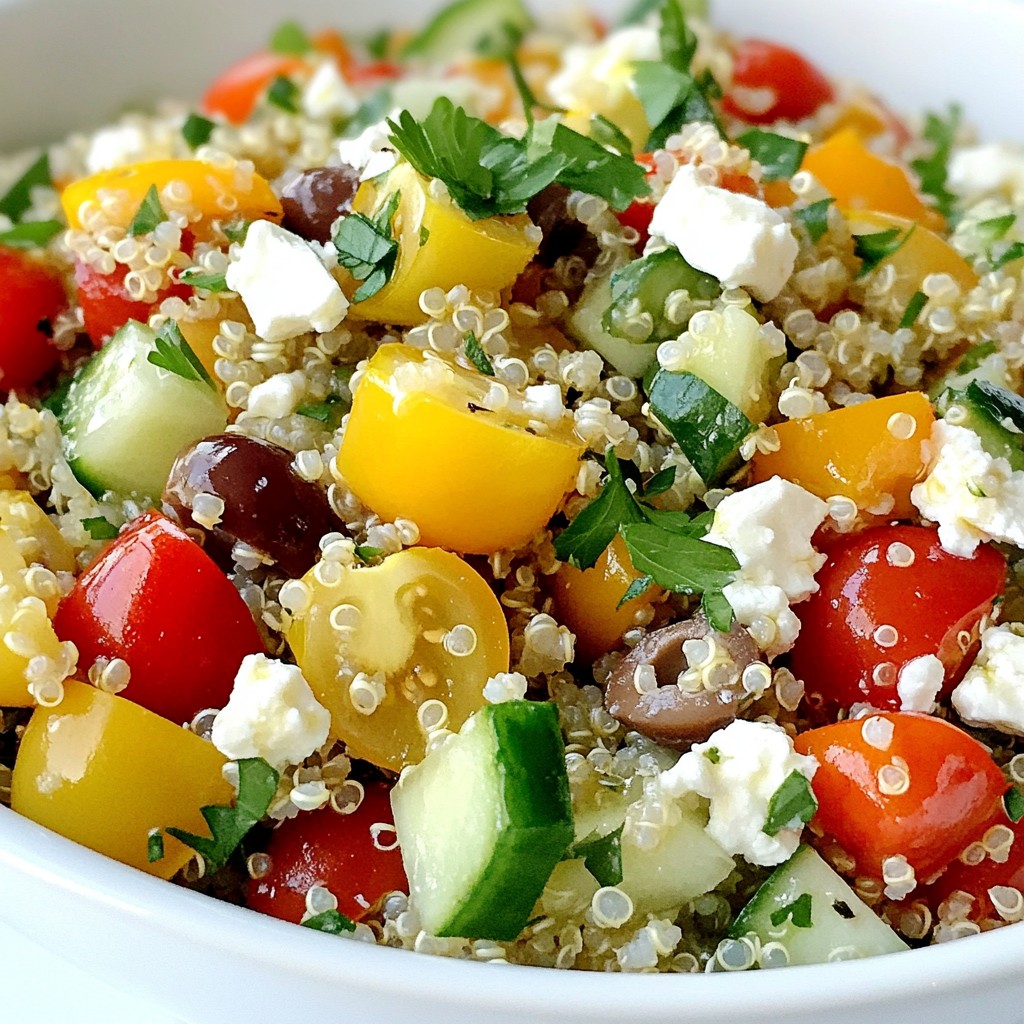Are you looking for a quick and tasty meal that makes cleanup a breeze? Look no further than my Sheet-Pan Maple Dijon Salmon and Veggies Delight. This dish combines juicy salmon and vibrant veggies in a sweet and tangy glaze, all baked on one sheet pan. With just a few simple ingredients and easy steps, you can create a satisfying dinner in no time. Let’s dive into how to make this flavorful feast!
Ingredients
Main Ingredients
– 4 salmon fillets
– 1/4 cup pure maple syrup
– 3 tablespoons Dijon mustard
Additional Ingredients
– 2 tablespoons olive oil, divided
– Spices including garlic powder, smoked paprika, salt, and pepper
Vegetables
– 2 cups fresh broccoli florets
– 1 cup cherry tomatoes, halved
– 1 medium zucchini, sliced
– 1 red bell pepper, chopped
The main ingredients for this dish are simple and flavorful. The salmon fillets are the star, bringing a rich taste and healthy fats to your meal. The maple syrup adds sweetness, while the Dijon mustard gives a nice tang. Together, they make a tasty glaze that coats the salmon perfectly.
For the additional ingredients, olive oil helps everything cook nicely while adding flavor. The spices, like garlic powder and smoked paprika, give depth to the dish. Adjust the salt and pepper to your taste for a finishing touch.
The vegetables complement the salmon well. Fresh broccoli florets add crunch and nutrients. Cherry tomatoes burst with flavor, while zucchini offers a soft texture. The red bell pepper adds sweetness and color. Each veggie brings its own taste, making every bite fun and delicious.
With these ingredients, you can create a balanced and vibrant meal that is easy to prepare.
Step-by-Step Instructions
Preheat the Oven and Prepare the Sheet Pan
– Set your oven to 400°F (200°C).
– Line a large sheet pan with parchment paper. This makes cleanup easy.
Make the Maple Dijon Glaze
– In a small bowl, mix the maple syrup, Dijon mustard, and one tablespoon of olive oil.
– Add garlic powder, smoked paprika, and a pinch of salt and pepper.
– Whisk until the glaze is smooth and well blended.
Coat the Salmon and Prepare Vegetables
– Place the salmon fillets on the sheet pan.
– Use a brush or spoon to apply the maple Dijon glaze over each fillet. Make sure they are well coated.
– In a separate bowl, toss the broccoli, cherry tomatoes, zucchini, and red bell pepper with the remaining olive oil.
– Season the veggies with salt and pepper.
Arrange and Bake
– Spread the seasoned vegetables around the salmon on the sheet pan.
– Make sure there is space for even cooking.
– Bake in the oven for 15-20 minutes. The salmon is ready when it flakes easily with a fork.
Finishing Touches
– After baking, take the sheet pan out of the oven.
– Drizzle any leftover glaze over the salmon and veggies for extra flavor.
– If you like a char on your veggies, switch to broil for the last 2-3 minutes.
Tips & Tricks
Cooking Tips
How to know when the salmon is done
The salmon is done when it flakes easily with a fork. This usually takes about 15 to 20 minutes in the oven. The fish should turn from a bright pink to a more opaque color. If you have a meat thermometer, the internal temperature should reach 145°F (63°C).
Adjusting cooking time for different vegetable types
Different vegetables cook at different rates. Broccoli and bell peppers cook faster than zucchini and tomatoes. If you use denser veggies, like carrots or potatoes, cut them smaller. This helps them cook evenly with the salmon. You can also start roasting these vegetables first for a few minutes before adding the salmon.
Serving Suggestions
Presentation ideas for serving
For a beautiful presentation, serve the salmon and veggies on a colorful platter. You can also plate each serving individually. Garnish with fresh parsley or sesame seeds for added color. This small touch makes the dish look gourmet.
Suggested side dishes to complement the meal
This meal pairs well with rice or quinoa. A fresh salad adds a nice crunch too. If you want something warm, mashed potatoes or roasted sweet potatoes are great options. These side dishes balance the flavors of the salmon and veggies.
Glaze Variations
Alternative ingredients for the glaze
You can customize the glaze by using honey instead of maple syrup for a different sweet taste. Try adding a splash of soy sauce for a savory twist. For a spicy kick, mix in some hot sauce.
Customizing flavor profiles
Feel free to change the Dijon mustard. Use whole grain mustard for a more robust flavor. You can also switch the garlic powder for fresh minced garlic for a stronger taste. Mixing and matching these ingredients allows you to create your own unique glaze.
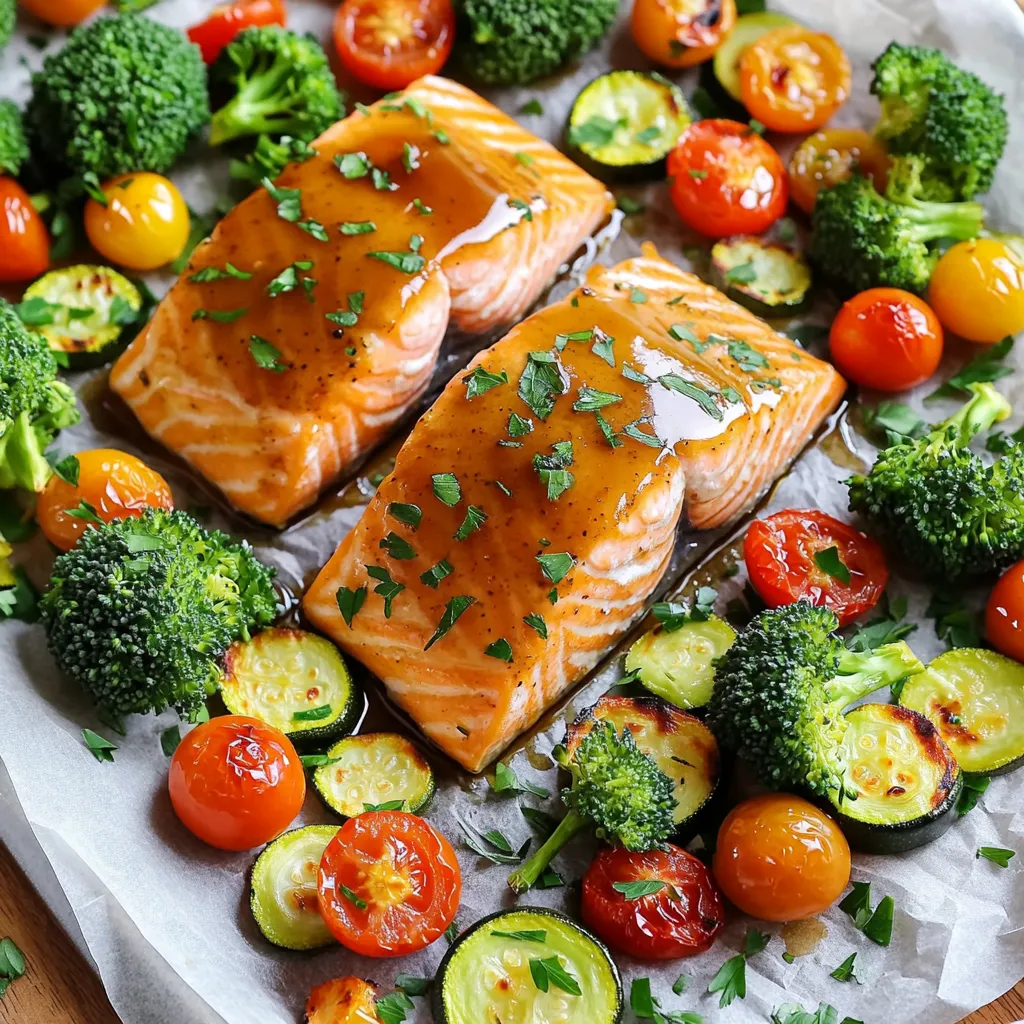
Variations
Protein Alternatives
You can easily change the protein in this dish. If you don’t have salmon, try using other fish like cod or tilapia. Both cook fast and have a mild taste. Chicken breasts also work well. Just ensure chicken is cooked to 165°F for safety.
For a vegetarian option, try tofu or chickpeas. Tofu soaks up the maple Dijon glaze nicely. To use tofu, press it first to get rid of excess water. Then, cube the tofu and coat it in the glaze. For chickpeas, use canned ones and toss them in the same glaze before baking.
Vegetable Alternatives
Feel free to mix in other vegetables. Seasonal options like asparagus, carrots, or Brussels sprouts add variety. Just cut them into similar sizes to ensure even cooking.
If you choose denser veggies, like carrots or sweet potatoes, cut them smaller. This helps them cook through in the same time as the salmon. You may need to add a few extra minutes to the baking time for them to become tender.
Dietary Modifications
To make this dish gluten-free, use gluten-free Dijon mustard. Most maple syrups are gluten-free, but always check labels to be sure.
For a low-carb option, skip the cherry tomatoes and use more non-starchy veggies. Zucchini and bell peppers are great choices. This keeps the dish light and still tasty. Adjusting the ingredients lets everyone enjoy this meal!
Storage Info
Best Practices for Storage
To store leftovers, let the dish cool down first. Place salmon and veggies in an airtight container. This helps keep them fresh. Use glass or plastic containers that seal well. Glass containers are great because you can see what’s inside.
Reheating Tips
To reheat salmon, use the oven or a skillet. Preheat your oven to 275°F (135°C). Place the salmon on a baking sheet. Add a splash of water. Cover it with foil to keep moisture in. Heat for about 15 minutes. If using a skillet, heat it on low. Add a bit of olive oil. Cook the salmon gently to avoid drying it out. Always check the center to ensure it’s warm.
Freezing Guidelines
Yes, you can freeze this dish! To freeze, place the cooled salmon and veggies in a freezer-safe container. Make sure to seal it tightly. Label the container with the date. For best taste, use it within three months. When ready to use, thaw it in the fridge overnight. Reheat as mentioned above. This way, you keep the flavors fresh!
FAQs
Common Questions about Sheet-Pan Meals
Can I use frozen salmon or vegetables?
Yes, you can use frozen salmon or vegetables. However, I suggest thawing them first. This helps them cook evenly. If you use frozen veggies, they may release extra water. So, cook them a bit longer to get rid of excess moisture.
How to ensure the salmon doesn’t dry out?
To keep salmon moist, do not overcook it. Bake it just until it flakes with a fork. The glaze also helps lock in moisture. You can also cover the salmon with foil for the first half of cooking. This traps steam and keeps it juicy.
Health and Nutrition Questions
Is this recipe healthy?
Yes, this recipe is healthy! Salmon is packed with protein and omega-3 fatty acids. The veggies add fiber and vitamins. Using olive oil in moderation keeps it heart-healthy. Plus, the maple syrup is a natural sweetener, making this dish a balanced choice.
Nutritional information per serving
Each serving offers about 350 calories. You get 25 grams of protein and 10 grams of healthy fats. It also includes 5 grams of carbs, mainly from veggies. This dish provides a great mix of nutrients that support your health.
General Cooking Questions
What is the benefit of cooking with a sheet pan?
Cooking with a sheet pan saves time and effort. You can cook a full meal on one pan. This method also allows flavors to blend. Clean-up is easy since you use just one dish. Plus, it makes for a great presentation!
Tips for cleaning and maintaining a sheet pan?
To clean a sheet pan, soak it in warm, soapy water. Use a non-abrasive sponge to scrub off stuck bits. Avoid metal utensils that can scratch the surface. Store it flat to prevent warping. With good care, your sheet pan will last for years!
This article shared a simple and tasty sheet-pan salmon recipe. You learned about the main and additional ingredients. I showed you step-by-step instructions for baking the dish. I also provided tips for cooking and serving.
Remember, you can customize the recipe with different proteins or veggies. Don’t forget to store leftovers safely or freeze them for later. Enjoy your cooking and savor every bite of this healthy meal!
